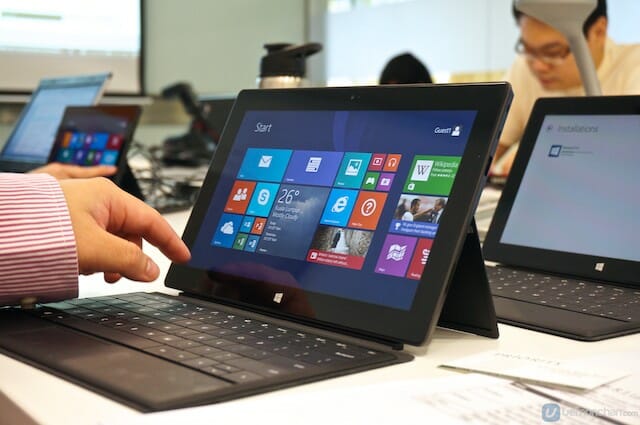Microsoft’s new Surface Book, though impressive in its design, draws ire from other PC makers. Image courtesy of Microsoft.
The announcement of Microsoft’s first laptop computer, the Surface Book, came as a surprise after the company has focused on the Surface tablet for the past three years. Perhaps Windows 8 taught Microsoft that most people don’t want to buy tablets that function as laptops. After years of trying to encourage PC makers to match the quality and design of Apple’s laptops, Microsoft appears to have taken matters into its own hands with the Surface Book.
The primary purpose of the Surface Book, much like that of Google’s Nexus devices, is to provide competition to manufacturers in order to catalyze design standard improvements. With its all-metal construction, high performance internals, and bonus tablet functionality, the Surface Book illustrates Microsoft’s vision of what a Windows laptop should be. Yet, all it has done so far is upset PC manufacturers.
Until recently, Microsoft and its hardware partners coexisted without conflict or competition. The roles that they played were simple: Microsoft handled the software while manufacturers handled the hardware. This symbiosis was broken, however, with Microsoft’s foray into the hardware business with the introduction of its Surface product line. Although the Surface tablets did not upend Microsoft’s relations with its partners, the Surface Book may prove to be the final straw.
It is no secret that PC makers like Acer, Dell, HP, and Lenovo are less than enthusiastic about Microsoft’s new laptop. Lenovo even refused to sell the product because it felt that the Surface Book was a legitimate competitor to its computers. As Microsoft continues to erode its ties with hardware partners, the PC industry may become more willing to adopt other operating systems. Although Dell laptops running Apple’s OS X remain out of the question, Linux has become an increasingly attractive option. You may scoff, but Linux already powers Valve’s Steam Machines, Google’s Chromebooks, and all Android devices.
Should Microsoft continue its transformation into a hardware company, the Windows monopoly may finally lose its iron-grip on the PC industry. And if PC makers decide to resist the company’s actions, don’t be surprised by a surge in ChromeOS and Android-powered laptops at your local Best Buy.








